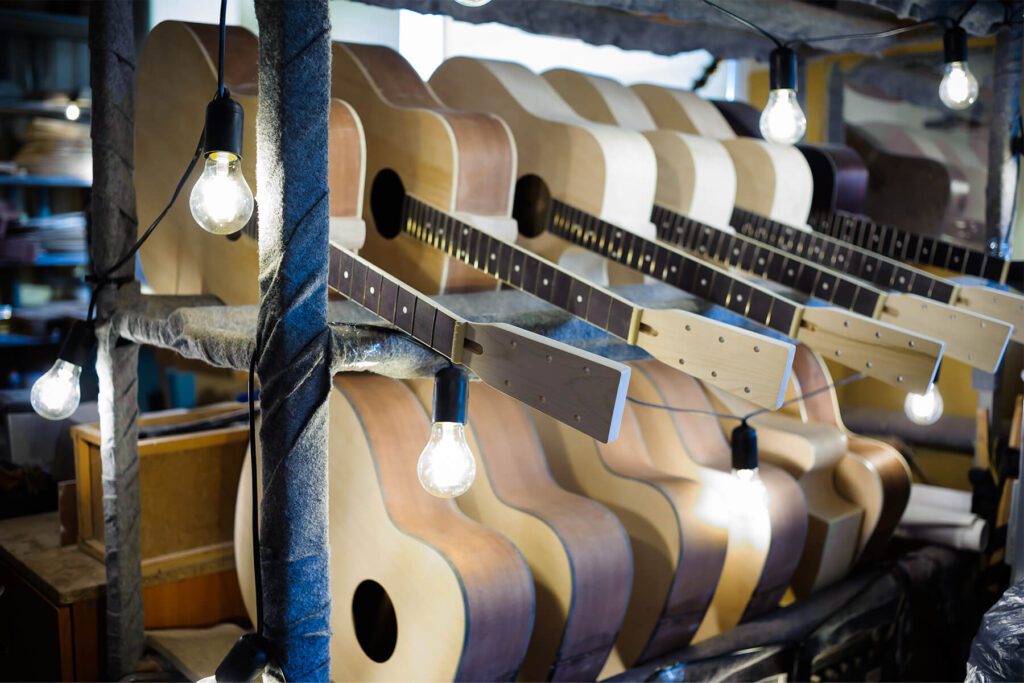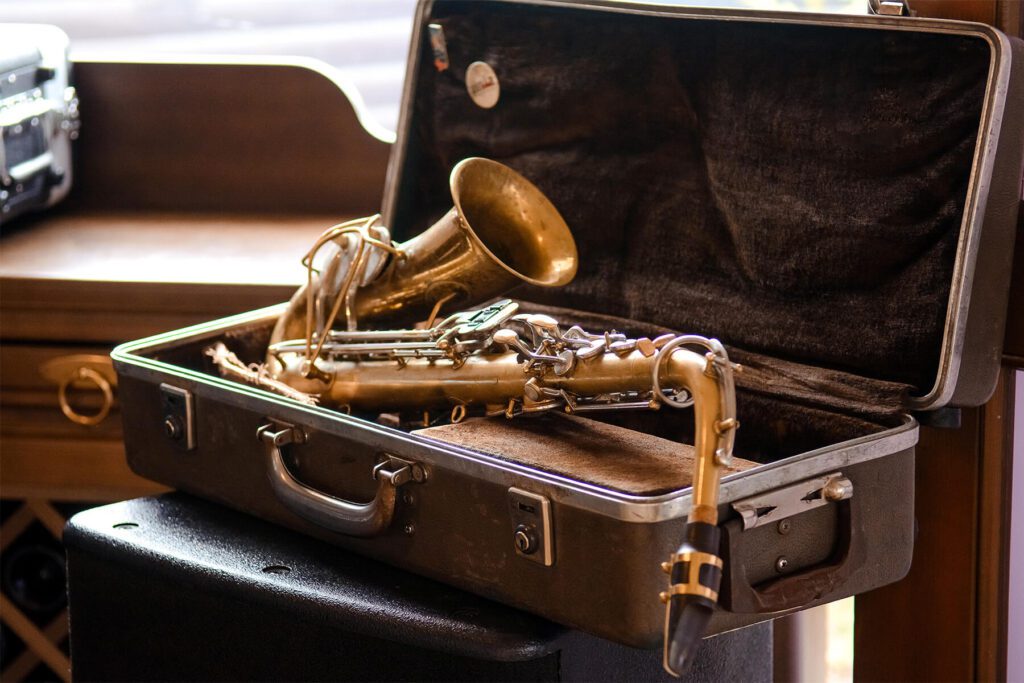
Most professional musicians, collectors, and serious hobbyists cherish their instruments. They are a source of joy, identity, and potentially a source of income. If we want to enjoy them for as long as possible, they deserve the highest level of care. This includes when we put them away for safekeeping. As a result, finding a long-term musical instrument storage solution should become a priority.
Most musical instruments are best stored clean and in their original cases. However, taking care of these prized possessions extends far beyond storing a guitar upright or keeping a flute in its case – especially when storing them for long periods of time. The elements that have the highest potential to damage instruments are temperature and humidity.
Why Climate Conditions Matter
Extreme heat and cold are harmful to instruments as are drastic or sudden fluctuations in temperature or humidity. Wood instruments are most susceptible to humidity extremes and can warp with too much or crack with too little humidity, but metal also expands and shrinks under the wrong conditions. Glue can weaken or even melt in high temperatures and joints can buckle under too much pressure from too much humidity. In short, there are consequences to improper long-term instrument storage that can cause lasting damage.
String Instruments
Let’s start with string instruments, which are all made of wood. Acoustic guitars, harps, and all instruments that make up the violin family should be kept clean and in their original cases. The strings should also be released to prevent snapping. Less-than-ideal environmental conditions will cause wooden instruments to crack, shrink, or warp. These conditions will ultimately compromise instruments’ quality and longevity. More specifically, warping from too much moisture alters the tone and timbre. Too little moisture causes wood instruments to shrink, which lowers the string action and causes stress on the instrument, and results in cracking. Glues and adhesives can also break down in extreme conditions.
When an instrument warps, it causes the tone and timbre to change and may jeopardize the integrity of the sound it produces for good.
Brass Section
Brass instruments such as trumpets, horns, and tubas are made of metal and should be stored in their cases with the valves facing up and never on the bells of the instruments. When they are stored for long periods of time, all slides and valves should be removed and kept in airtight bags.
The ambient storage conditions are also important. While metal is less susceptible to environmental conditions than wood, extreme heat and humidity can cause a brass instrument to shrink or expand. Too much humidity also creates a breeding ground for bacterial growth and corrosion, which can damage instruments past the point of no return. Moreover, felt, rubber or cork components within brass instruments deteriorate under improper storage conditions.
Woodwinds

Clarinets, flutes, and oboes are a few instruments that make up the woodwind family. At one time, they were made from wood—hence the name—but now most are made of metal. Prior to long-term storage, woodwinds should be properly cleaned, broken down, and housed in their original cases.
Many woodwinds contain reeds that vibrate when musicians blow into them. Since moisture can cause mold and rust, keeping the internal components of these instruments dry is a priority. Likewise, the first step when storing woodwinds is to have them dry out fully. This is also why excess humidity within a storage space can be problematic. It causes pads to swell and invites bacteria and mildew. Too little humidity causes joints to crack and can make an instrument uncomfortable to play.
Percussion Family
Instruments that are hit, shaken, or scraped fall into the percussion category, which includes everything from bass drums to chimes to the triangle. Like all other instruments, they need to be properly cleaned and stored long-term in a suitable case. It is also beneficial to lessen the tension on drum skins.
The percussion instrument most vulnerable to hostile storage conditions is the piano. With 15,000 glued joints, wooden exterior, and strings, the piano is susceptible to rust, corrosion, mold, warping, and cracking. In fact, heat can even cause the bushings to swell. In other words, every single part of a piano can be damaged through poor storage conditions. Since it is impossible to keep pianos in a case, it is helpful to keep them off the floor—where the most extreme temperature fluctuations happen—on wooden pallets.
Why an AC Unit Is Not Enough
To keep instruments safe for years to come, it is best to store them in pristine conditions. Most do well at around 70℉ with 40-50% relative humidity.
While it might be tempting to keep an instrument storage room cool with a standard comfort control air conditioner, they are not equipped to get the job done.
Air conditioners are designed to keep a space cool by removing heat and moisture from the air. So, an AC can generally keep a room at 70℉, but it cannot regulate humidity.
Another consideration is that standard mini-split systems (AC units) recirculate air from a single location, making it impossible to maintain a consistent temperature throughout an instrument storage room. For the same reason that it is less than ideal to store a piano directly on the floor where temperature fluctuations are greatest, using an AC to protect valuable instruments leaves them vulnerable to pockets of hot or cold air. Remember: fluctuations in temperatures can be as damaging as prolonged extreme hot or cold.
Climate Control Solutions
Wine Guardian Pro units are designed to maintain the temperature and humidity for the long-term storage of instruments. The Pro units come in several capacities to accommodate a wide range of applications from music schools with many instruments to spaces housing smaller collections.
Keep in mind that the size of space will dictate the size of the unit needed to keep instruments healthy. Whether a room is properly insulated and air-tight is another consideration. Lastly, the more exposure space has to ambient conditions—through uninsulated windows, walls, and doors—the greater the need for a more powerful climate control system. Don’t leave the longevity and sound quality of your instruments to chance. Store them in optimal conditions and keep your prized possessions in your repertoire for years to come.

